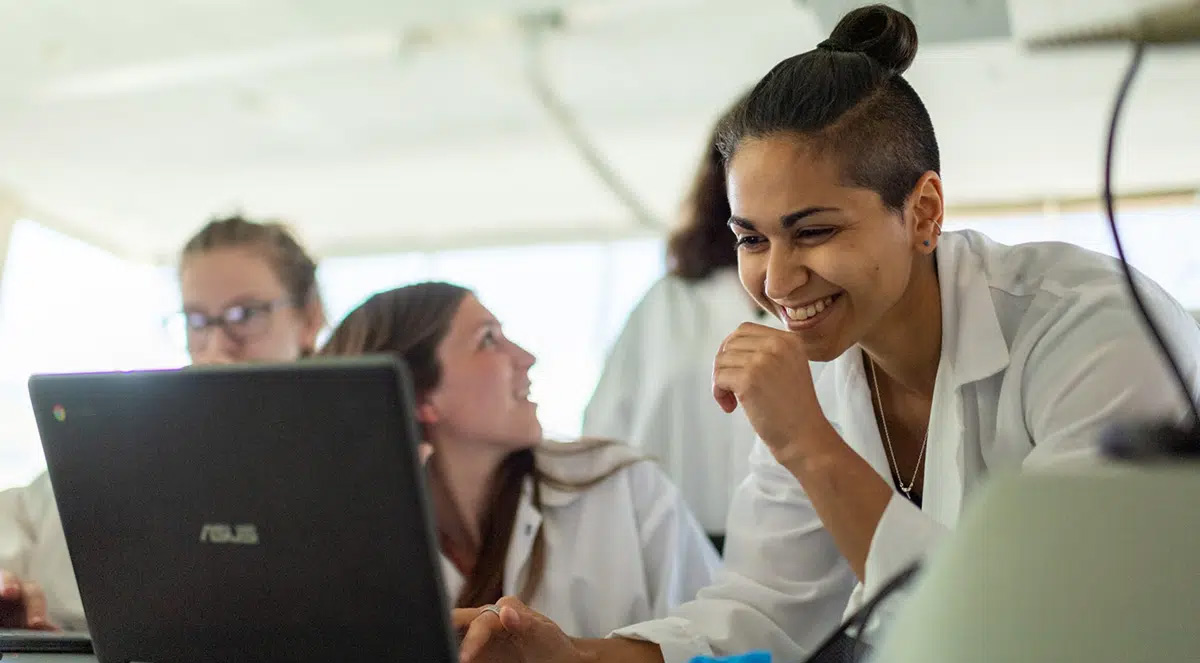27 Sep Desa named inaugural Melita F. Grunow Postdoctoral Fellow

Danielle Desa, the Melita F. Grunow Postdoctoral Fellow (right), works with a high school student during a 2022 Summer Science Camp analyzing microscopy images using the ImageJ software.
Stem cells are a powerful tool to understand and treat cardiovascular disease, which is responsible for over 30 percent of all deaths worldwide.
Scientists are beginning to unlock their potential. Using human induced pluripotent stem cells (iPSC), we can generate highly functional cardiomyocytes (CM), the muscle cells responsible for the contraction of the heart. Armed with these cells, scientists hope to model heart disease, screen drugs, and develop personalized patient therapies.
However, the process of differentiating stem cells into mature cardiomyocytes is costly, labor-intensive, and highly variable.
And that’s where Danielle Desa comes in.
In September, Desa was awarded the inaugural Melita F. Grunow Postdoctoral Fellowship at the Morgridge Institute for Research — a new fellowship honoring Melita Grunow of Fontana, Wisconsin that funds early career scientists.
Desa seeks to break new ground in optical imaging design and stem cell research. She is mentored and supported by Melissa Skala, the Carol Skornicka Chair in Biomedical Imaging at Morgridge, and William Murphy, the Harvey D. Spangler Professor and H.I. Romnes Faculty Fellow in the Department of Biomedical Engineering at UW-Madison.
Desa’s project builds on the momentum of the Skala Lab’s 2021 publication in the journal Nature Communications which describes a non-invasive imaging technique that can predict the efficiency of CM differentiation as a method of quality control.



